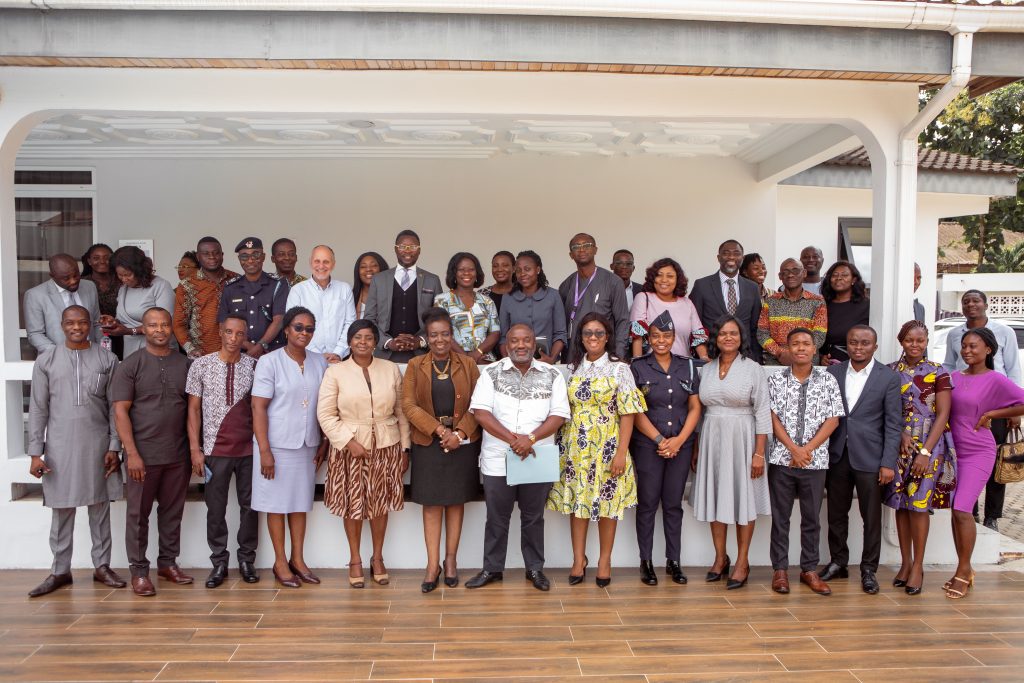By Edward Dankwah
Accra, June 19, GNA – Mr Nicolas Gebara, Team Leader of Compete Ghana, has said the Economic Partnership Agreement (EPA) between the European Union (EU) and Ghana would reduce trade barriers between the two entities.
He said it would also enhance Ghanaian exporters’ opportunities to the EU.
Mr Gebara made the remarks at the validation workshop on capacity needs assessment results and the development of training modules to discuss key areas of the EPA for public institutions in Accra.
The Economic Partnership Agreement is a trade and development pact, which sought to protect sensitive sectors and local producers who might otherwise struggle to compete against EU imports.
He said the agreement allowed Ghanaian companies to export tariff and quota-free to the EU markets.
“But there are also some requirements that every exporter must comply with, which includes EU quality standards and norms, rules of origin and certifications, compliance to the regulations of the EU which applies to exports from EU to Ghana as well,” he indicated.
Mr Gebara said in the process of implementing the EPA, a number of public stakeholders played key roles in guiding the private sector in their efforts to export to the EU.
He added that the Compete Ghana Programme had also embarked on building the capacity of public institutions and assessed the needs of individual institutions to be involved in the effective implementation of the EPA.
Mr Gebara indicated that since December 2016, Ghana had enjoyed duty-free and quota-free access to the EU market.
He added that following the signing of the EPA, Ghana’s exports to the EU almost doubled between 2016 and 2019, from 1.19 billion euros in 2016 to 2.27 billion euros in 2019.
Mr Gebara assured that Ghana would gradually remove its import duties for 80 per cent of EU exports by 2029 and that in the future, the EU and Ghana might decide to expand the EPA to include provisions on investment and trade in services.
He said the agreement provided support to compensate for possible revenue losses because Ghana removed tariffs on 80 per cent of goods imported from the EU and enabled businesses to enhance their exports and increase their production base, thereby generating more jobs in the Ghanaian economy.
Mr Gebara said the EPA secretariat at the Ministry of Trade and Industry was monitoring the processes required in implementing the EPA, and that there were joint committee meetings between Ghana and EU to discuss the progress so far.
He said, “The EU was financing for the capacity enhancement of government institutions that were directly and indirectly related to the implementation of the EPA.”
“Every institution has a role to play in guiding the private sector on how to enhance their exports to the EU market, and so we have identified and invited thirteen institutions to know the level of skills they will require to implement the agreement efficiently,” Mr Gebara stressed.
Mrs Justina Mensah, a capacity building expert, said it was very important that the Ministry of Trade Ministry and Industry and the EU support and make the necessary arrangements to facilitate access to the priority resources list identified in the capacity needs assessment of the thirteen institutions.
She said the thirteen public institutions should also use innovative approaches to raise funds to support the capacity development process of their institutions.

“Therefore, efforts should be made by the trade ministry, the EU and the institutions to make available the systems, tools, equipment and software needed as outlined in the capacity needs assessment report by the technical assistance team,” Mrs Mensah indicated.
Mr Raffaele Quarto, Trade Counselor, EU Delegation, said they were implementing the project to develop the capacity and skills of Ghanaian businesses and authorities to be able to benefit fully from the agreement.
He indicated that the delegation was implementing other programmes on vocational training, agriculture, and other areas not related to business.
The Compete Ghana Programme is in the context of the Ghana Beyond Aid vision, to improve economic governance and the business environment, and to maximise the benefits of the EPA for Ghana.
It also would strengthen the competitiveness of Ghana’s exports and enhance Ghana’s integration into the regional and international trading system.
GNA